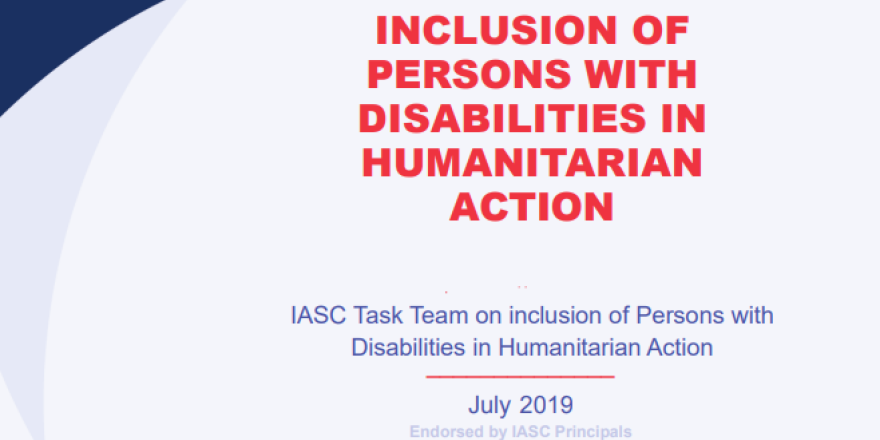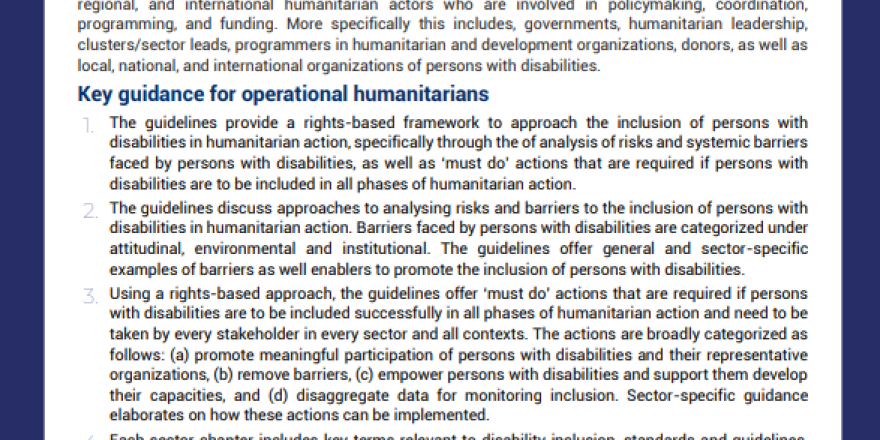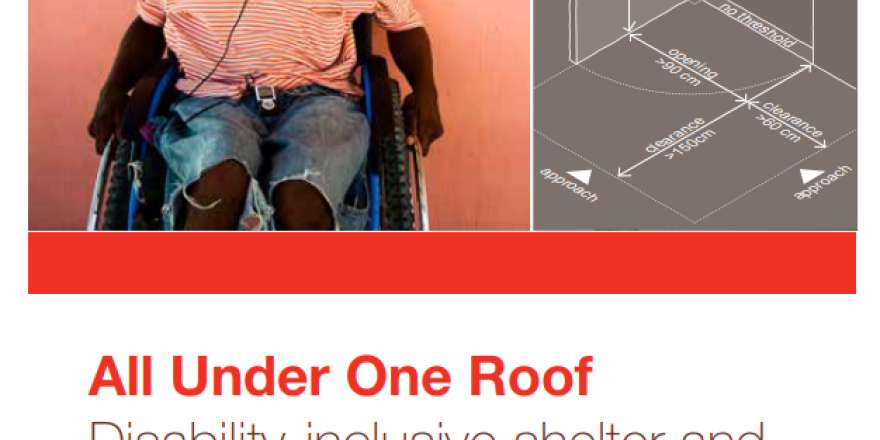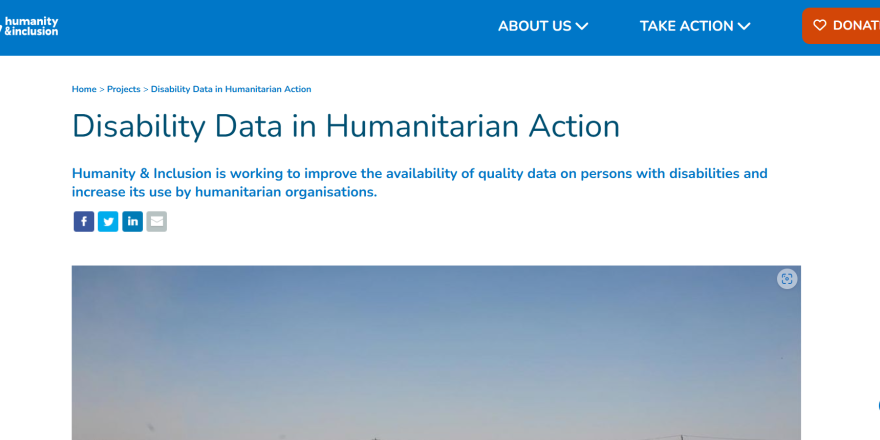Philippines Typhoons 2024
Disability and Inclusion
The Washington group of Questions
Disability Data in Humanitarian Action
Humanity & Inclusion is working to improve the availability of quality data on persons with disabilities and increase its use by humanitarian organisations.
From July 2016 to June 2019, Humanity & Inclusion ran a project to improve data collection on persons with disabilities in humanitarian crises. As part of this project, the Washington Group Questions (WGQs) were tested and assessed for use in humanitarian response contexts and the findings were used to develop learning on the use of the WGQs by humanitarian actors.
Background
What is the problem?
Humanitarian actors lack information and knowledge about available or appropriate tools to collect disability data. They often use binary 'yes/no' questions, such as “do you have a disability or medical condition”, which lead to underreporting.
Humanitarian actors do not know how many persons with disabilities are affected in a given crisis.
Without knowing the number of persons with disabilities, humanitarian actors are not equipped to identify and address the needs of persons with disabilities, or design and implement inclusive projects.
The Washington Group on Disability Statistics
The Washington Group on Disability Statistics was established in 2001 under the UN Statistical Commission. Its goal is to develop and test tools to collect internationally comparable disability statistics, and to help actors better identify persons with disabilities.
The WGQs original purpose is to generate reliable and comparable data on persons with disabilities during national level data collection exercises. In humanitarian action, the WGQs can be used to measure access rates of persons with disabilities to humanitarian programmes and services.
In the initial stage of the project, Humanity & Inclusion piloted the use of the Washington Group Short Set of questions in humanitarian settings with key humanitarian actors.
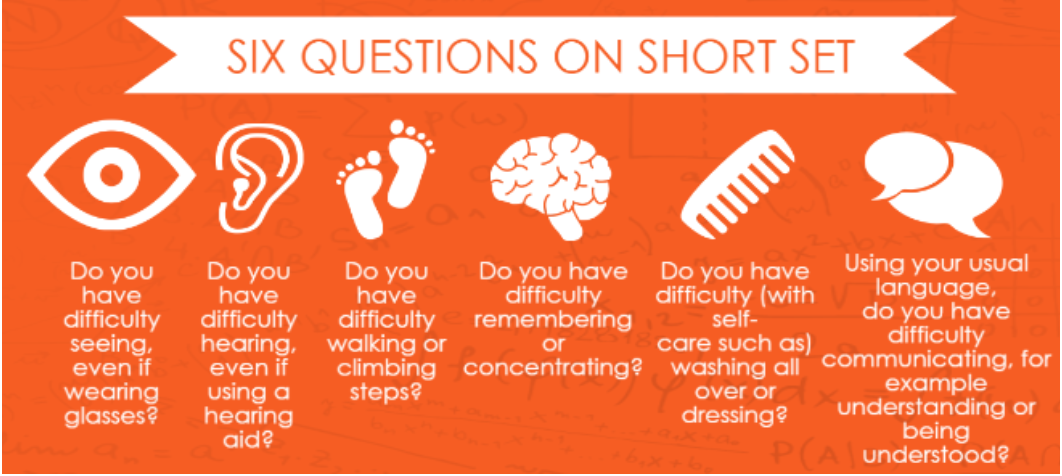
Methodology
- Implement an action-research to test and assess of the use of the WGQs in humanitarian action in Jordan, the Democratic Republic of Congo and the Philippines.
- Create a learning toolkit designed specifically for humanitarian actors using the results of the action-research. Use the results of the action research to create learning materials and guidance designed specifically for humanitarian actors.
- Disseminate the action-research findings and learning toolkit, advocate for the use of the WGQs in humanitarian action where appropriate, and build capacity of humanitarian actors using the learning toolkit.
Action-research
The action-research aimed to:
- Understand how the WGQs performed in different humanitarian settings and sectors of intervention to identify persons with disabilities.
- Identify the process necessary for humanitarian actors to collect useful and quality data using the WGQs.
- The action-research was implemented with humanitarian actors working in different sectors and humanitarian contexts, to integrate the WGQs in their existing practices.
Humanity & Inclusion and Leonard Cheshire collaboratively wrote a summary review (available below) which includes all the findings from the action-research.

